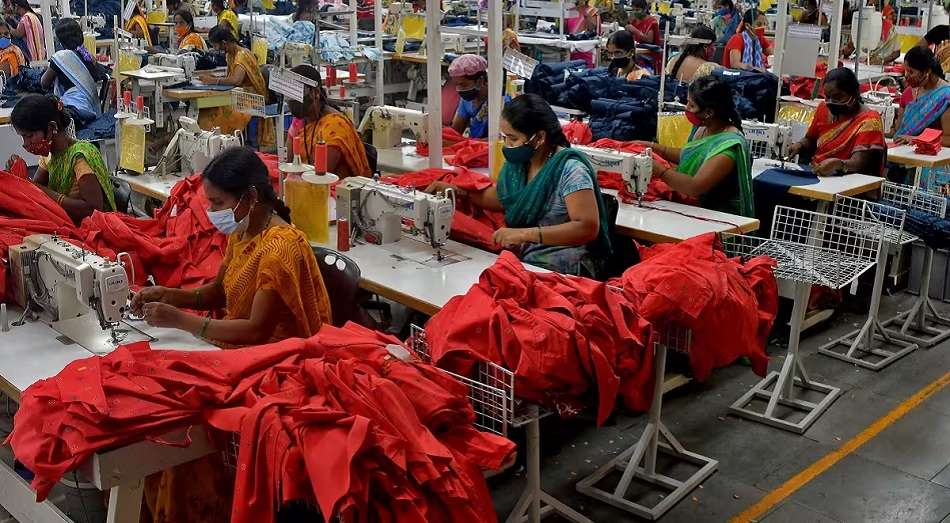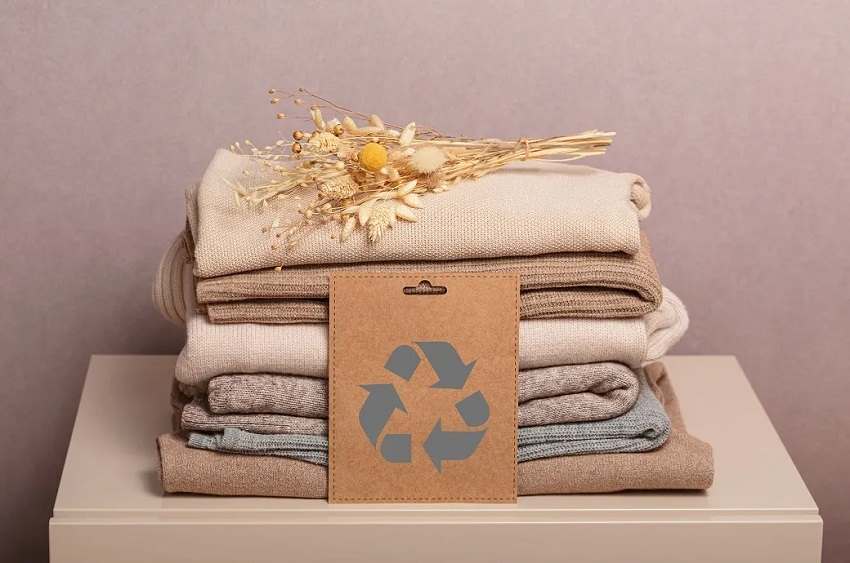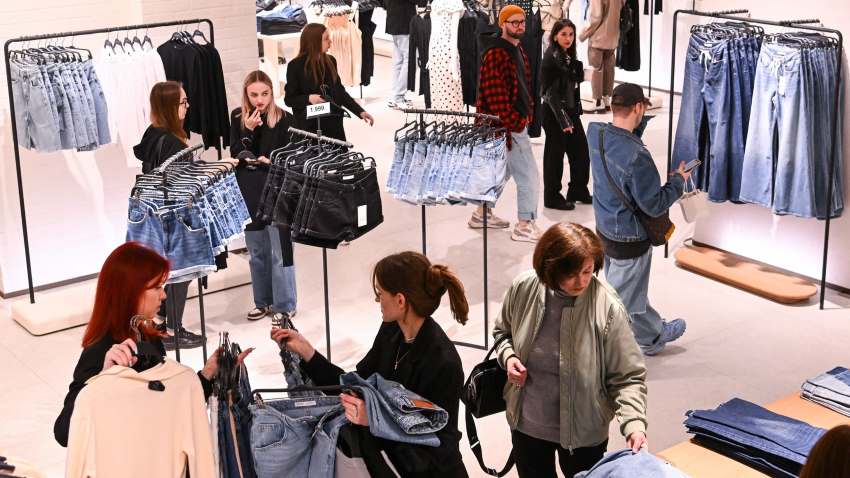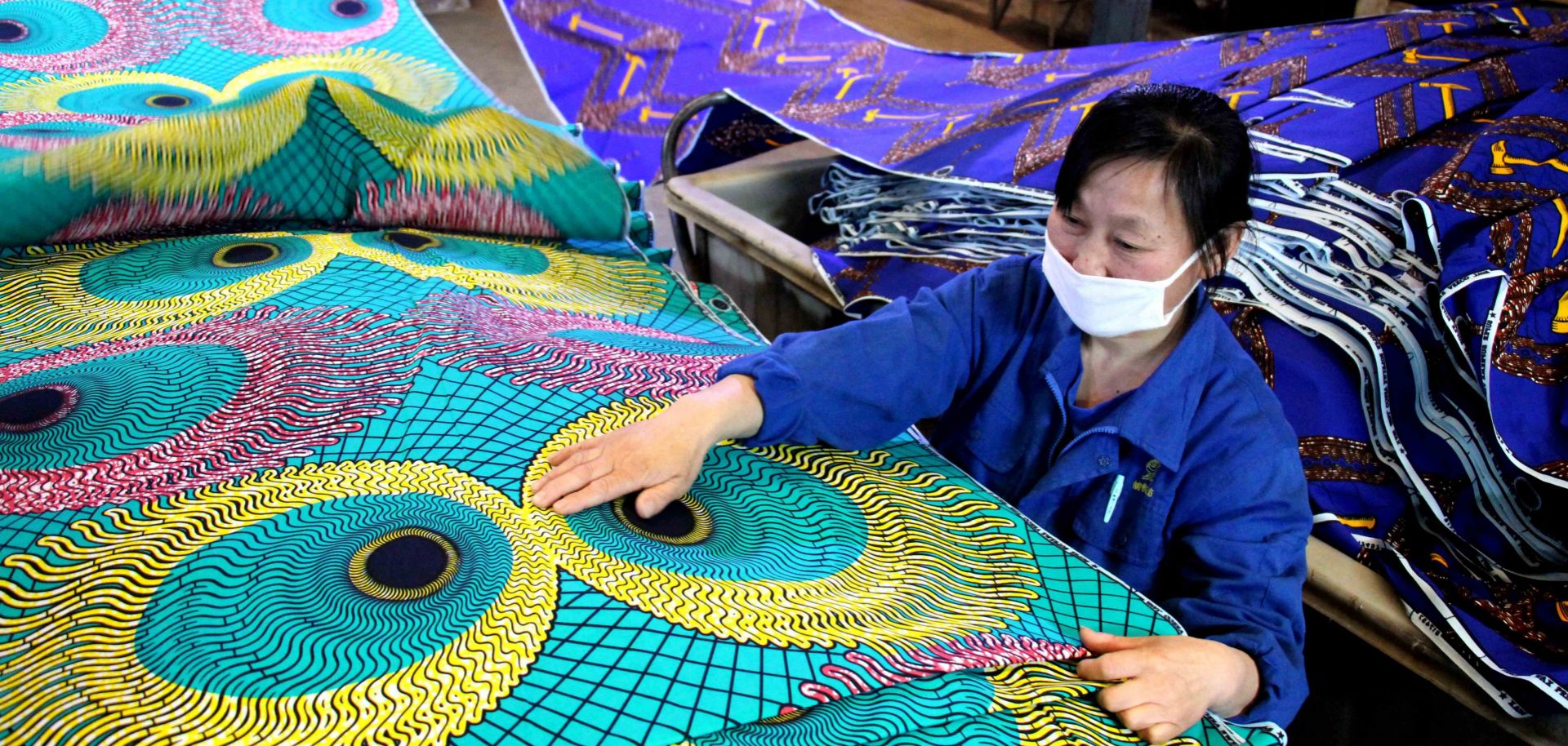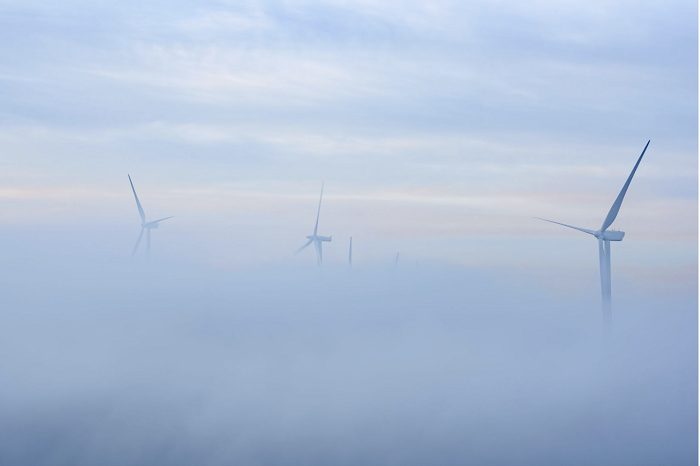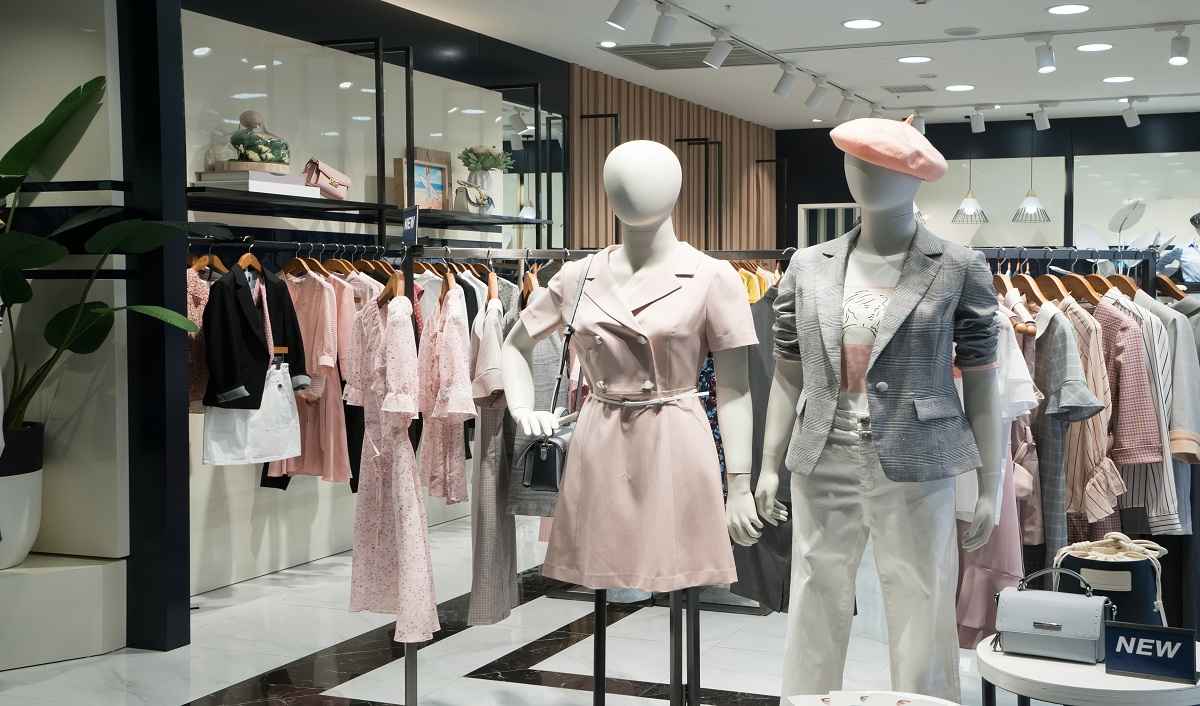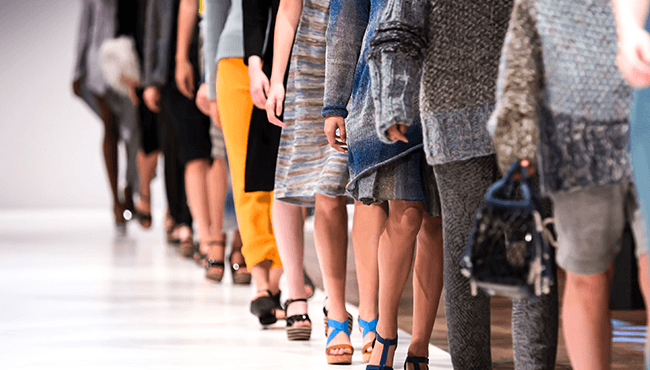In the last one year, Spanish apparel retailer Mango has doubled the percentage of sustainable garments in its collection. Currently, around 80 per cent of the garments sold by Spanish apparel retailer are sustainable. By 2025, the company plans to recyle 100 per cent of the polyester it uses and trace the origins of all cellulose fibers.
The company is also maintaining its goal that 100 per cent of the cotton used will be of sustainable origin by 2025. In 2021, Mango achieved a 91 per cent use of sustainable cotton and a 59 per cent use of cellulose fibres of controlled origin. Furthermore, 54 per cent of the polyester used was recycled, achieving the initial target four years ahead of time.
In its journey towards sustainability, Mango has signed agreements with various bodies and companies worldwide. Key coalitions it forms part of include the International Accord, the Fashion Pact and the United Nations Fashion Charter for Climate.
In 2021, Mango implemented a new water management strategy to reduce the consumption and increase the efficiency of this resource. Within this context, it has signed up to the ZDHC Roadmap to Zero programme as a ‘Collaborator’. Mango has also signed up to the Canopy Style initiative, which is committed to protecting forests by ensuring the responsible use of all cellulose materials used in garments, paper and packaging.
Mango has also signed up to the net zero target for 2050. In its journey to achieve net zero emissions, the company has set itself new intermediate targets. It has committed to reduce its direct emissions by 80 per cent, as well as those generated by the Scope 1 and 2 energy it consumes, by 2030. It has also committed to reduce by 35 per cent the Scope 3 emission it produces in its supply chain by the same year.
Fashion for Good has launched the ‘Untapped Agricultural Waste Project’ to validate and scale technologies that can successfully transform agricultural waste into sustainable textile fibres. To be funded by Laudes Foundation, the project has been launched in partnership with adidas, Bestseller, Vivobarefoot and Birla Cellulose, and six innovators. The consortium project will assess the technical feasibility of natural fibres created by the selected innovators using agricultural waste such as rice husks, hemp, wheat straw, banana and pineapple.
The 18 month ‘Untapped Agricultural Waste Project’ leverages findings from their 2021 report, ‘Spinning Future Threads,’ authored by the Institute for Sustainable Communities, the World Resources Institute India and Wageningen University and Research. The report maps agricultural waste in eight countries across South and Southeast Asia, identifying the untapped opportunities in agricultural waste streams including rice husks, wheat straw, banana and pineapple production, which are the focus of this project.
The six fibre innovators, AltMat, Bananatex, Chlorohemp, Agraloop by Circular Systems, HempTex India and 9Fiber, will be further developing a variety of different natural fibres and fibre blends with a focus on trialling the highest percentage of agricultural waste, while also achieving the necessary performance requirements. Birla Cellulose will work closely with the innovators providing expertise to develop and prepare their new materials for wider adoption in the fashion supply chain, with the participating project brand partners supporting the testing and eventual scaling of these fibres.
This first phase of the project concludes in December 2022. To further drive supply chain adoption and move beyond lab scale, the next phase of the project will pilot the agri-waste fibres from selected innovators in collaboration with partner brands and supply chain players in commercial facilities to produce larger quantities. This next phase ultimately aims to further enable brand offtake agreements and financing to facilitate scaling.
Coloreel, with its unique technology for digital dyeing of textile thread on-demand, has expanded partnership with US leading distributor of embroidery machines, Hirsch Solutions.
Hirsch Solutionsis the leading distributor of embroidery machines and other decoration equipment on the US market, with a large network of high-end customers in the textile and decoration industry.
With the strengthened partnership, both companies are making additional investment in the areas of sales, service & support and marketing to meet the increased demand on the US market. As a result, Hirsch has the exclusive sales rights when Coloreel is purchased for use with a Tajima Embroidery Machine in the US. Additionally, Hirsch is authorized to distribute Coloreel to the entire US territory.
Coloreel is a Swedish textile innovation brand with a groundbreaking technology for embroidery that enables high-quality coloring of textile thread on demand, unlocking a world of potential.
Coloreel is also part of the movement to reduce waste and move the textile industry towards more sustainable production. By coloring the thread directly, there is no wastewater, hence no water pollution. And, using a single reel of thread and needle also means minimized thread waste and minimized microfiber pollution.
Since our inception in 1968, Hirsch Solutions has been helping apparel decorators of all levels - beginners to professionals - start, grow and diversify their business. From embroidery to screen printing to textile laser engraving to direct to garment digital printing and more.
The rewarded 2021 CLASS Icon Award Portuguese brand Duarte will present its Fall/Winter 2022/23 collection developed in collaboration with CLASS Eco Hub at the Milan Fashion Week. Duarte’s creations will be featured as a special project at WSM (WHITE Sustainable Milano) platform space inside “Unveiling the fashion Backstage”, a docu-event focusing on an immersive journey into the amazing world of premium and smart supply chains that make innovative and responsible fashion wardrobes a reality. For its second collection Duarte still counts on CLASS support in sourcing materials and communication activities as part of the Icon Award yearly program.
The streetwear designer Ana Duarte, with the help of the Milanese hub, is back with a renewed collection that counts 40 pieces continuing the concept and the story behind the previous World Keeper: the irresistible superhero Tadao - Ana Duarte’s dog – fighting against the environmental issues created by mankind and personified as Smog Man (air pollution), Fire Man (climate change), Deforestation Man (forests destruction) and Wave Man (water overconsumption).
This time the inspiration is also Street Dance drawn directly from the city streets, with majorly unisex pieces (apart from some small specific details linked to sizes or ergonomics) and materials that both respect the planet and keep you warm. The prints drawn from ripped posters giving birth to a sort of new style that we can name “Eco- Street Dance”.
The color palette explores the dark shades of grey, cream, blue and black, with artistic pops of color of a hopeful urban culture that tears apart posters from the past and turns them into a new brighter story
On the occasion of the OECD Forum, Clean Clothes Campaign is once again urging garment companies to immediately ensure that workers are all paid during this crisis and receive the severance they are owed if they lose their jobs.
At the start of the 2022 OECD Forum on Due Diligence in the Garment and Footwear Sector, Clean Clothes Campaign welcomes the strong emphasis on purchasing practices in the official agenda. The OECD Forum aims to galvanize the industry as well as regulators into taking long overdue action to ensure that workers can survive the pandemic and that companies’ purchasing practices create the space for workers’ rights to be respected in the future.
The Severance Guarantee Fund will mitigate the devastating consequences of unemployment for workers in the future by directly compensating workers and financially supplementing or strengthening government social protection programs for unemployment or severance benefits. Brands and retailers would contribute to both funding streams through a fee based on volume sourced from each country, and employer fees would be a percentage of their wage bill in each country. As social protection systems improve, the brand premiums will be reduced accordingly.
The OECD Due Diligence Guidance on Responsible Supply Chains in the Garment and Footwear Sector recognizes the harmful impact of purchasing practices on workers’ rights including low wages. The numerous product cycles or seasons per year associated with the ‘fast fashion’ model, late and delayed payments, and price negotiation strategies requiring cost-cutting by suppliers are all singled out for their potential of adverse effects. The OECD Guidance recommends that businesses: assess whether their purchasing practices contribute to harm; implement control measures to prevent contributing to harm; and develop management procedures that purchasing departments should follow to mitigate against harm.
A survey by the WTO and the United Nations names Vietnam as the most attractive apparel sourcing location for the United States. Vietnam is also seen to be equal to China in terms of production quality. However, China leads in terms of efficiency, innovation, lead time and vertical integration. As per an Innovation in Textiles report, Chinese exports are likely to suffer from claims of forced labor being used within Xinjiang province. This led to many countries banning imports of Xinjiang-made cotton and, under the Uyghur Forced Labor Prevention Act (UFLPA), companies
Bangladesh ranks lower than Vietnam based on 10 out of 12 criteria. Its score on sustainability totaled 2 compared to Vietnam’s score of 3.5. Vietnam also emerges a leader amongst apparel sourcing locations as per a survey by the data analytics and consulting company GlobalData. To ensure compliance with UFLPA norms, apparel brands may prefer to source from locations which they can be confident do not use materials made in Xinjiang province. This may lead to a considerable drop in apparel imports from China in 2022 and beyond.
Multi-stakeholder organization Netherlands’ Organic Cotton Accelerators (OCA) has been included as the new member of the Sustainable Apparel Coalition (SAC). A global industry-wide group of more than 250 leading brands, SAC works to reduce environmental impact and promote social justice throughout the global value chain.
As SAC’s new member, OCA will support its commitment to a collaborative sector approach to unleash the organic cotton effect. The organization will also help promote and pursue SAC’s 2030 strategy to create resilient farming communities and ecosystems for a future-proof organic cotton sector. OCA will align with SAC’s insights and methodology in collecting and engaging data from its farm program in India and Pakistan to shape the development of robust environmental and social impact goals.
As a member of the SAC, OCA will contribute both data and resources to support the Higg Index, which enables companies to proactively measure and manage issues like environmental stewardship, working conditions, and supplier relations. The SAC has set forth an ambitious new strategic plan to transform business for exponential impact. SAC will work with its members to strengthen industry accountability by focusing on reducing sector-wide emissions by almost half by 2030 and promoting safe and fair working conditions across the global value chain.
Leather and shoe industry exhibition, Lineapelle is being held from February 22- 24,-2022. The exhibition focuses on sustainability, eco-design and resource conservation. Among the prominent exhibitors at Lineapelle is Sympatex exhibiting for the 13th time in a row. The company is showcasing its Fibre2Fibre offering, clothing technology and a new range. Sympatex’s sister company Utmospheric showcases a technology to produce an inner shoe in one cast. The company will open its specially developed production facility in Freilassing, southern Germany to visitors after the exhibition.
As worldwide leading producers, Sympatex® Technologies has been offering high- tech functional materials in clothing, footwear, accessories and technical fields of application since 1986. The company develops, produces and distributes membranes, laminates and functional textiles as well as finished products worldwide. The Sympatex membrane is highly breathable, 100 per cent wind- and waterproof and regulates the climate. It is also 100 per cent recyclable, climate- neutral, bluesign® certified, and it received the ‘Oeko-Tex-Standard 100’ certificate. It is also PTFE-free and PFC-free
Tunisia’s jeans exports to the US increased by 69.4 per cent in volume and 84.3 per cent in value in 2021 compared to 2020, with 366 thousand pieces worth $9.33 million. The average price of Tunisian Jeans trousers increased 8.77 per cent to $25.5 in 2021, as per an analysis by the Textile Technical Centre (CETTEX). As per an African Manager report, US’ jeans imports grew 31.8 per cent in volume and 30 per cent in value in 2021. Imports from Bangladesh, Mexico, Vietnam, China, Pakistan and Cambodia covered 80 per cent of the US market share in jeans.
The textile and clothing sector in Tunisia can benefit from the US market provided it abolishes the customs duties of 17 per cent. On signing a preferential agreement, the sector could get 3 per cent of the total US market share of jeans and generate a positive dynamic of exports and of job creation. Value of exports is likely to increase to $108 million while volume will increase to 3.67 million. This will create almost 15,000 direct jobs and 22,500 indirect jobs.
US textile and clothing imports, which had declined in 2020, rebounded sharply during January-November 2021, notes a Textileintelligence report by Innovation in Textiles. US textile and clothing production and exports also rebounded during the period. US’ imports of textile and clothing from Argentina had declined sharply in 2020. However, there was significant rebound during January- September 2021. Textile and clothing production, imports and retail sales in the country had also declined in 2020 but rebounded from January-September 2021.
Imports from Brazil improved significantly during January-October 2021. Also, textile and clothing production in the country improved in 2020 and during January-November 2021. However, its textile and clothing imports declined in 2020 before rebounding again January-October 2021. Colombia’s textile and clothing exports to the US also rebounded sharply during January-November 2021. Mirroring these trends, textile and clothing production also increased during the period.
A similar trend was noted in Mexico whose textile and clothing exports rebounded during January-October 2021. The country’s textile and clothing production also rebounded sharply during January-October 2021.
- 1
- 2
- 3
- 4
- 5
- 6
- 7
- 8
- 9
- 10
US Cotton: Shifting dynamics amidst reciprocal tariffs and quality advantages
The US has long held a dominant position in the global cotton market, thanks to its reputation for producing high-quality... Read more
India’s textile and apparel industry sees mixed fortunes in FY25: Wazir Indices
India’s textile and apparel sector showed mixed results in FY25, with growth momentum visible in sales but profit metrics showing... Read more
UK charts course for circular fashion leadership with new CFIN roadmap
A new landmark report released by the Circular Fashion Innovation Network (CFIN) outlines major strides and a comprehensive roadmap for... Read more
The Unseen Cost of Fashion Returns: Undermining sustainability efforts
Fashion brands are increasingly vocal about their commitment to sustainability, proudly unveiling initiatives centered on recycled polyester, reduced water consumption... Read more
China's Luxury Crossroads: Consolidation or retreat for global giants?
For years, China has been the undisputed El Dorado for global fashion and luxury brands. A growing middle class, with... Read more
Fashion for Good and Arvind unveil Future Forward Factories in India to cut text…
Fashion for Good and Arvind Limited have launched the Future Forward Factories India initiative, a major push to reshape the... Read more
The Scope 3 Challenge: Unpacking the elephant in the emissions room
In the escalating global focus on combating climate change, businesses are under pressure to account for their carbon footprint. While... Read more
Right Size, Right Impact: Personalized fit weaving a sustainable future for fash…
With growing environmental consciousness, the fashion industry, long criticized for its detrimental impact, is looking for new and innovative ways... Read more
From Runway to Retail Shelf: Why fashion needs a dose of FMCG discipline
The fashion industry, often lauded for its artistry and emotional appeal, stands at an intriguing crossroads. While it captivates with... Read more
Global Sourcing Expo spotlights Australia's sustainable fashion growth amid supp…
Australia's demand for sustainable fashion is reaching new heights, driven by increasing consumer awareness and a rising wave of conscious... Read more


